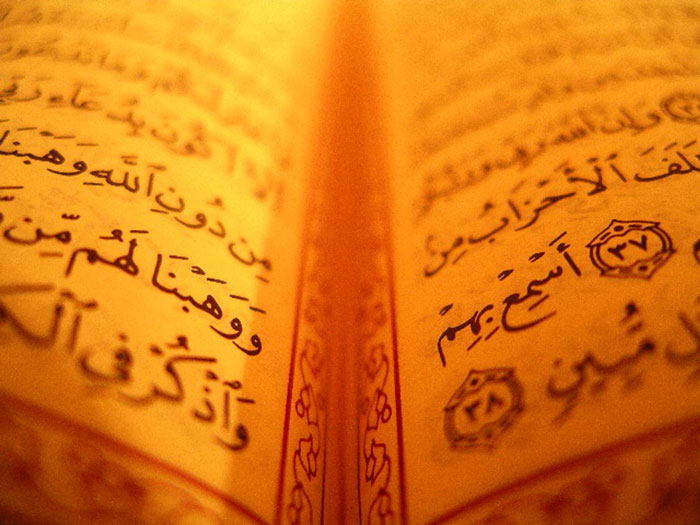[vc_row][vc_column][vc_column_text]We the undersigned respectfully urge the Danish Parliament to vote in favour of bill L 170 repealing the blasphemy ban in section 140 of the Danish criminal code, punishing “Any person who, in public, ridicules or insults the dogmas or worship of any lawfully existing religious community”.
Denmark is recognised as a global leader when it comes to the protection of human rights and freedom of expression. However, Denmark’s blasphemy ban is manifestly inconsistent with the Danish tradition for frank and open debate and puts Denmark in the same category as illiberal states where blasphemy laws are being used to silence dissent and persecute minorities. The recent decision to charge a man – who had burned the Quran – for violating section 140 for the first time since 1971, demonstrates that the blasphemy ban is not merely of symbolic value. It represents a significant retrograde step in the protection of freedom of expression in Denmark.
The Danish blasphemy ban is incompatible with both freedom of expression and equality before the law. There is no compelling reason why the feelings of religious believers should receive special protection against offence. In a vibrant and pluralistic democracy, all issues must be open to even harsh and scathing debate, criticism and satire. While the burning of holy books may be grossly offensive to religious believers it is nonetheless a peaceful form of symbolic expression that must be protected by free speech.
Numerous Danes have offended the religious feelings of both Christians and Muslims without being charged under section 140. This includes a film detailing the supposed erotic life of Jesus Christ, the burning of the Bible on national TV and the publication of cartoons depicting the prophet Muhammed. The Cartoon affair landed Denmark in a storm of controversy and years of ongoing terrorist threats against journalists, editors and cartoonists. When terror struck in February 2015 the venue was a public debate on blasphemy and free speech.
In this environment, Denmark must maintain that in a liberal democracy, laws protect those who offend from threats, not those who threaten from being offended.
Retaining the blasphemy ban is also incompatible with Denmark’s human rights obligations. In April 2017 Council of Europe Secretary General Thorbjørn Jagtland emphasised that “blasphemy should not be deemed a criminal offence as the freedom of conscience forms part of freedom of expression”. This position is shared by the UN’s Human Rights Committee and the EU Guidelines on freedom of expression and religion.
Since 2014, The Netherlands, Norway, Iceland and Malta have all abolished blasphemy bans. By going against this trend Denmark will undermine the crucial European and international efforts to repeal blasphemy bans globally.
This has real consequences for human beings, religious and secular, around the globe. In countries like Pakistan, Mauretania, Iran, Indonesia and Russia blasphemy bans are being used against minorities as well as political and religious dissenters. Denmark’s blasphemy ban can be used to legitimise such laws. In 2016 the UN Special Rapporteur on Freedom of Religion or Belief pointed out that “During a conference held in Jeddah (Saudi Arabia) [in 2015], the Danish blasphemy provision was cited by one presenter as an example allegedly indicating an emerging international customary law on “combating defamation of religions”.
Blasphemy laws often serve to legitimise violence and terror. In Pakistan, Nigeria and Bangladesh free-thinkers, political activists, members of religious minorities and atheists have been killed by extremists. In a world where freedom of expression is in retreat and extremism on the rise, democracies like Denmark must forcefully demonstrate that inclusive, pluralistic and tolerant societies are built on the right to think, believe and speak freely. By voting to repeal the blasphemy ban Denmark will send a clear signal that it stands in solidarity with the victims and not the enforcers of blasphemy laws.
Jacob Mchangama, Executive director, Justitia
Steven Pinker, Professor Harvard University
Ahmedur Rashid Chowdhury, Exiled editor of Shuddhashar, 2016 winner International Writer of Courage Award
Pascal Bruckner, Author
Ayaan Hirsi Ali, Human Rights Activist Founder of AHA Foundation,
Dr. Elham Manea, academic and human rights advocate (Switzerland)
Sultana Kamal, Chairperson, Centre for Social Activism Bangladesh
Deeyah Khan, CEO @Fuuse & founder @sister_hood_mag.
Fatou Sow, Women Living Under Muslim Laws
Elisabeth Dabinter, Author
William Nygaard, Publisher
Flemming Rose, Author and journalist
Jodie Ginsberg, CEO, Index on Censorship
Kenan Malik, Author of From Fatwa to Jihad
Thomas Hughes, Executive Director Article 19
Suzanne Nossel, executive director of PEN America
Pragna Patel – Director of Southall Black Sisters
Leena Krohn, Finnish writer
Jeanne Favret-Saada, Honorary Professor of Anthropology, Ecole Pratique des Hautes Etudes,
Maryam Namazie, Spokesperson, Council of Ex-Muslims of Britain
Fariborz Pooya, Host of Bread and Roses TV
Frederik Stjernfelt, Professor, University of Aalborg in Copenhagen
Marieme Helie Lucas, Secularism Is A Women’s Issue
Michael De Dora, Director of Government Affairs, Center for Inquiry
Robyn Blumner, President & CEO, Center for Inquiry
Nina Sankari, Kazimierz Lyszczynski Foundation (Poland).
Sonja Biserko, Founder and president of the Helsinki Committee for Human Rights in Serbia
James Lindsay, Author
Malhar Mali, Publisher and editor, Areo Magazine
Julie Lenarz – Executive Director, Human Security Centre, London
Terry Sanderson President, National Secular Society
Greg Lukianoff, CEO and President, FIRE
Thomas Cushman, Professor Wellesley College
Nadine Strossen, John Marshall Harlan II Professor of Law, New York Law School
Simon Cottee, the Freedom Project, Wellesley College
Paul Cliteur, professor of Jurisprudence at Leiden University
Lino Veljak, University of Zagreb, Croatia
Lalia Ducos, Women’s Initiative for Citizenship and Universals Rights , WICUR
Lepa Mladjenovic, LC, Belgrade
Elsa Antonioni, Casa per non subire violenza, Bologna
Bobana Macanovic, Autonomos Women’s Center, Director, Belgrade
Harsh Kapoor, Editor, South Asia Citzens Web
Mehdi Mozaffari, Professor Em., Aarhus University, Denmark
Øystein Rian, Historian, Professor Emeritus University of Oslo
Kjetil Jakobsen, Professor Nord University
Scott Griffen, Director of Press Freedom Programmes International Press Institute (IPI)
Henryk Broder, Journalist
David Rand, President, Libres penseurs athées — Atheist Freethinkers
Tom Herrenberg, Lecturer University of Leiden
Simone Castagno, Coordinamento Liguria Rainbow
Laura Caille, Secretary General Libres
Mariannes Andy Heintz, writer
Bernice Dubois, Conseil Européen des Fédérations WIZO
Ivan Hare, QC[/vc_column_text][/vc_column][/vc_row][vc_row][vc_column][vc_basic_grid post_type=”post” max_items=”12″ style=”load-more” items_per_page=”4″ element_width=”6″ grid_id=”vc_gid:1495443304735-e4b217b9-25e4-0″ taxonomies=”88, 53″][/vc_column][/vc_row]






